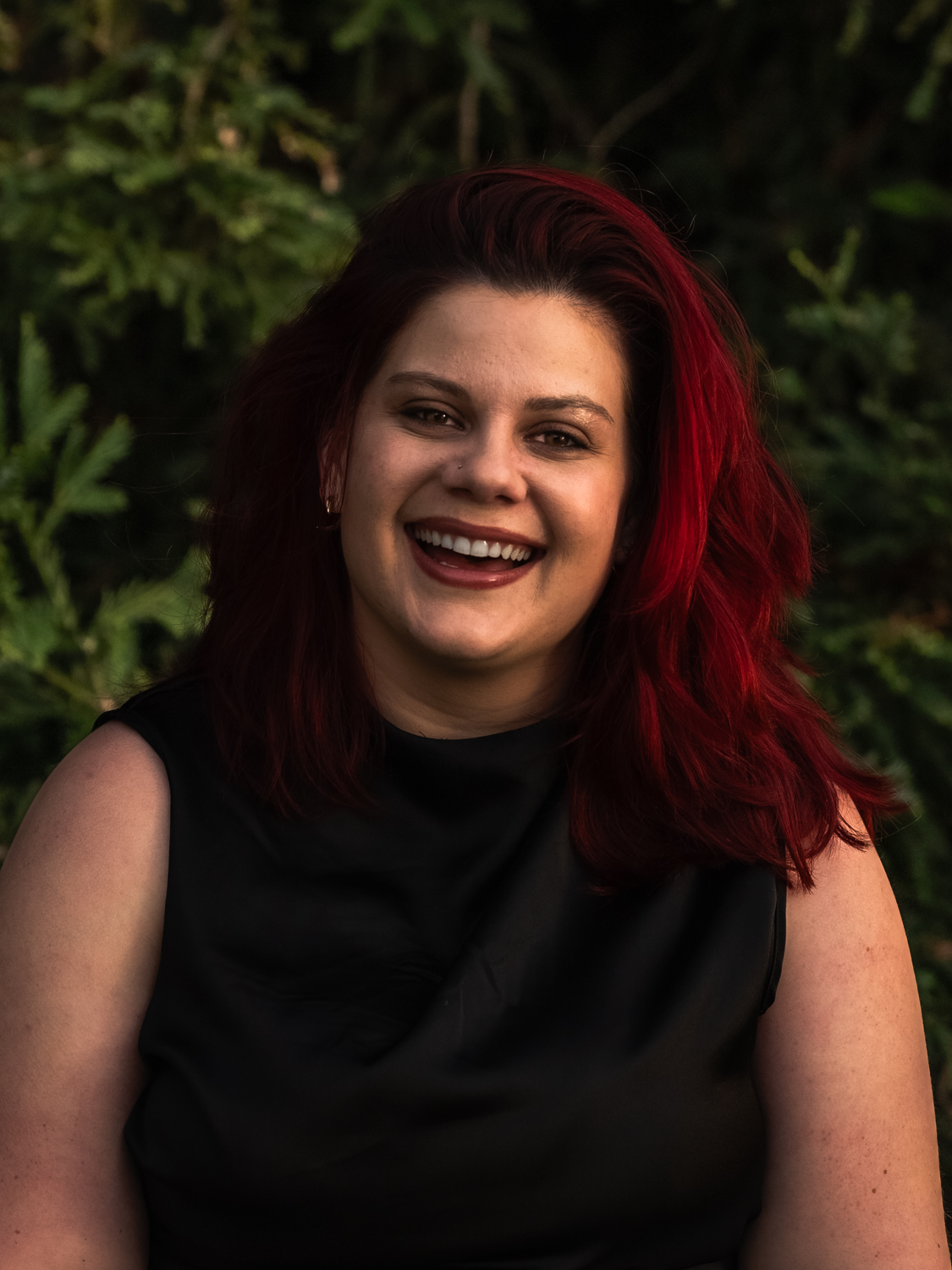We’re excited to introduce you to the always interesting and insightful Leah Richter. We hope you’ll enjoy our conversation with Leah below.
Leah, appreciate you joining us today. Can you talk to us about how you learned to do what you do?
I’m a freelance filmmaker, and one of the great things about this field is that there isn’t just one way to learn it. Some people go to film school, and others jump straight into work and learn by doing. For me, it was a mix of both.
I studied Environmental Science at UC Davis and graduated with my Bachelor of Science right at the start of the pandemic in June 2020. Job options were pretty limited at the time—especially in the environmental world—so I started hopping between different jobs, trying to figure out what I really wanted to do. I worked as a barista, did some event planning, spent time in the wine industry—just exploring and seeing what stuck. Nothing quite clicked.
Eventually, I decided I’d go back to school for my MBA, planning to start in the fall of 2022. But when that got deferred, I found myself with some time and decided to take a film class at Santa Rosa Junior College—just for fun. One class turned into two, then three, and before I knew it, I realized that with six classes over two semesters, I could earn an associate’s degree in filmmaking. So I thought, why not? I was having such a great time learning.
When I finished my two semesters at the JC, I landed an internship at a local TV station. I continued honing my craft there—learning more about TV production and developing a wide range of technical and creative skills—and eventually landed a staff position with them. While I was there, I kept working on outside projects and productions, meeting more people in the local film community, and continuing to grow. Eventually, those side projects started to pick up enough momentum that I decided to take the leap (ah, scary!) and become a full-time freelancer in June 2024.
When it comes to “learning the craft,” filmmaking is one of those careers where experience is everything. You can study theory and learn technical terms in school, but the real education comes from being on set—seeing how departments interact, understanding the “why” behind each role, and learning how to problem-solve in real time. Every project I’ve worked on—whether narrative, corporate, commercial, or live event—has taught me something new. Each job helps me refine my process, pick up new tricks, and meet people who become future collaborators.
Looking back, I don’t think I’d change much about my path. Maybe I would’ve jumped in a little sooner, but I’m actually glad I didn’t study film from the start. Having a background outside of filmmaking gave me a different perspective, and life experience is a huge asset in this industry. A lot of the best filmmakers I know didn’t go straight into film, and I think that makes their work richer. So much of production relies on common sense, communication, and adaptability—skills that come from living life, not just being in a classroom.
If I had to pinpoint the most essential skills, I’d say technical knowledge is incredibly important—but people skills are what make or break you. Film is deeply collaborative. You’re constantly working with new teams, talent, clients, and creatives. You could be the most technically skilled person on set, but if you’re not a good person to work with, you won’t be invited back. This business runs on relationships and reputation. On the flip side, if you’re eager, reliable, and easy to work with, people will remember you and bring you onto future projects—even if you’re still learning.
As for obstacles, the main one is simply lack of experience. You can read and study as much as you want, but filmmaking is learned by doing. Each project builds your toolkit, teaches you something new, and helps you level up for the next opportunity. The only way forward is to keep creating, keep learning, and keep saying yes to new challenges.
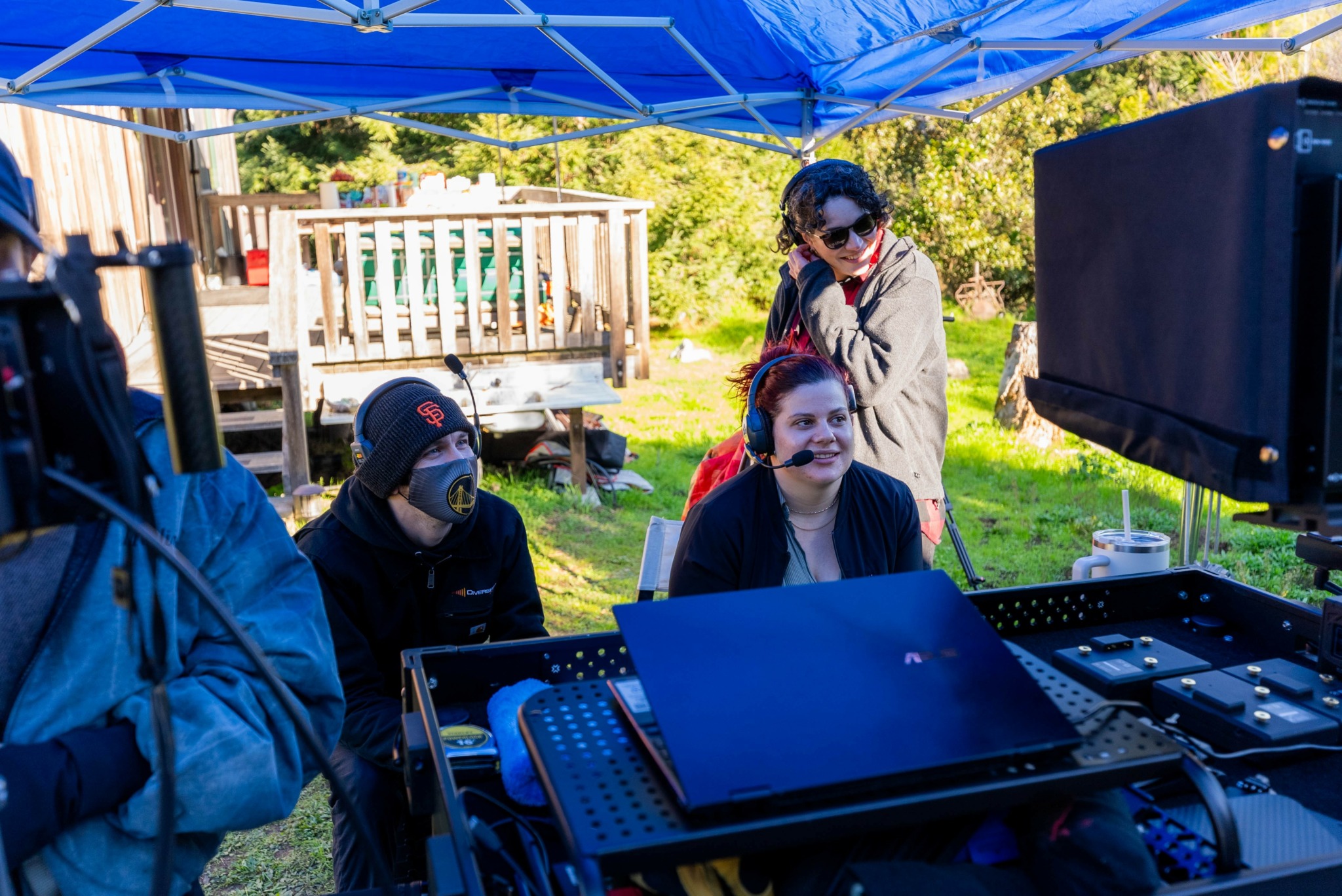
Awesome – so before we get into the rest of our questions, can you briefly introduce yourself to our readers.
(Adding the beginning of the last one here to as it applies)
I studied Environmental Science at UC Davis and graduated with my Bachelor of Science right at the start of the pandemic in June 2020. Job options were pretty limited at the time—especially in the environmental world—so I started hopping between different jobs, trying to figure out what I really wanted to do. I worked as a barista, did some event planning, spent time in the wine industry—just exploring and seeing what stuck. Nothing quite clicked.
Eventually, I decided I’d go back to school for my MBA, planning to start in the fall of 2022. But when that got deferred, I found myself with some time and decided to take a film class at Santa Rosa Junior College—just for fun. One class turned into two, then three, and before I knew it, I realized that with six classes over two semesters, I could earn an associate’s degree in filmmaking. So I thought, why not? I was having such a great time learning.
When I finished my two semesters at the JC, I landed an internship at a local TV station. I continued honing my craft there—learning more about TV production and developing a wide range of technical and creative skills—and eventually landed a staff position with them. While I was there, I kept working on outside projects and productions, meeting more people in the local film community, and continuing to grow. Eventually, those side projects started to pick up enough momentum that I decided to take the leap (ah, scary!) and become a full-time freelancer in June 2024.
So essentially, I kind of lightly stumbled my way in, but once I did, I was hooked. I realized pretty quickly that the variety and short-term nature of projects in this industry really stimulate my brain. Production gives you the chance to use both the creative and technical sides of your mind — and that balance keeps me constantly challenged, inspired, and excited. Every project feels fresh and different, and that constant change is something I thrive on.
My work spans across production, art, and post-production. Depending on the project, I might be designing, styling, writing, editing, producing, or serving as something completely different. Each job is unique — sometimes it’s a corporate or commercial shoot, sometimes a narrative film, a event coverage, a product piece, etc. The variety keeps me growing and learning, and I’ve found that the skills are incredibly transferable across all of them. Each type of project has its own specialized needs, but organizing, storytelling, and making things look great are at the heart of it all.
My favorite projects are usually short, story-driven pieces created for businesses — like promotional shorts or branded features that showcase who they are in a cinematic, engaging way. I think video has such a powerful ability to grab attention and evoke emotion, especially in today’s world of social media where storytelling has to feel authentic and immediate. Whether it’s horizontal or vertical content, I love creating pieces that not only look beautiful but also help brands connect meaningfully with their audience.
On the personal side, I have a deep love for narrative filmmaking and directing. My favorite part of directing is the collaboration — getting to work alongside other artists who are equally passionate about what they do. No one in this field is here because it’s easy or wildly lucrative; most of us do it because we love it. We love the art, the teamwork, and the feeling of bringing something beautiful to life together.
What sets me apart, I think, is the range of roles I’ve taken on and my understanding of how all the pieces of production connect. I’ve worked in pre-production, on-set production, and post — and that full-picture perspective has been a huge advantage. Each phase impacts the others, and knowing what each department needs to succeed helps me communicate better, problem-solve faster, and make the entire process smoother.
One project I’m especially proud of is a short film I directed in early 2025, By the Seventh Day. We spent the latter half of 2024 in pre-production, and after an intense two days of filming and a few months in post, it came together beautifully. Watching it now, I feel proud not only of the film itself but of the incredible team who brought it to life. Every shot reminds me how lucky I am to collaborate with such talented and dedicated artists.
If there’s one thing I’d want clients, followers, or future collaborators to know, it’s that I care deeply about the people I work with and the stories we tell. Production isn’t easy — it takes time, planning, and a lot of heart — but with the right team and support, you can create something truly special.
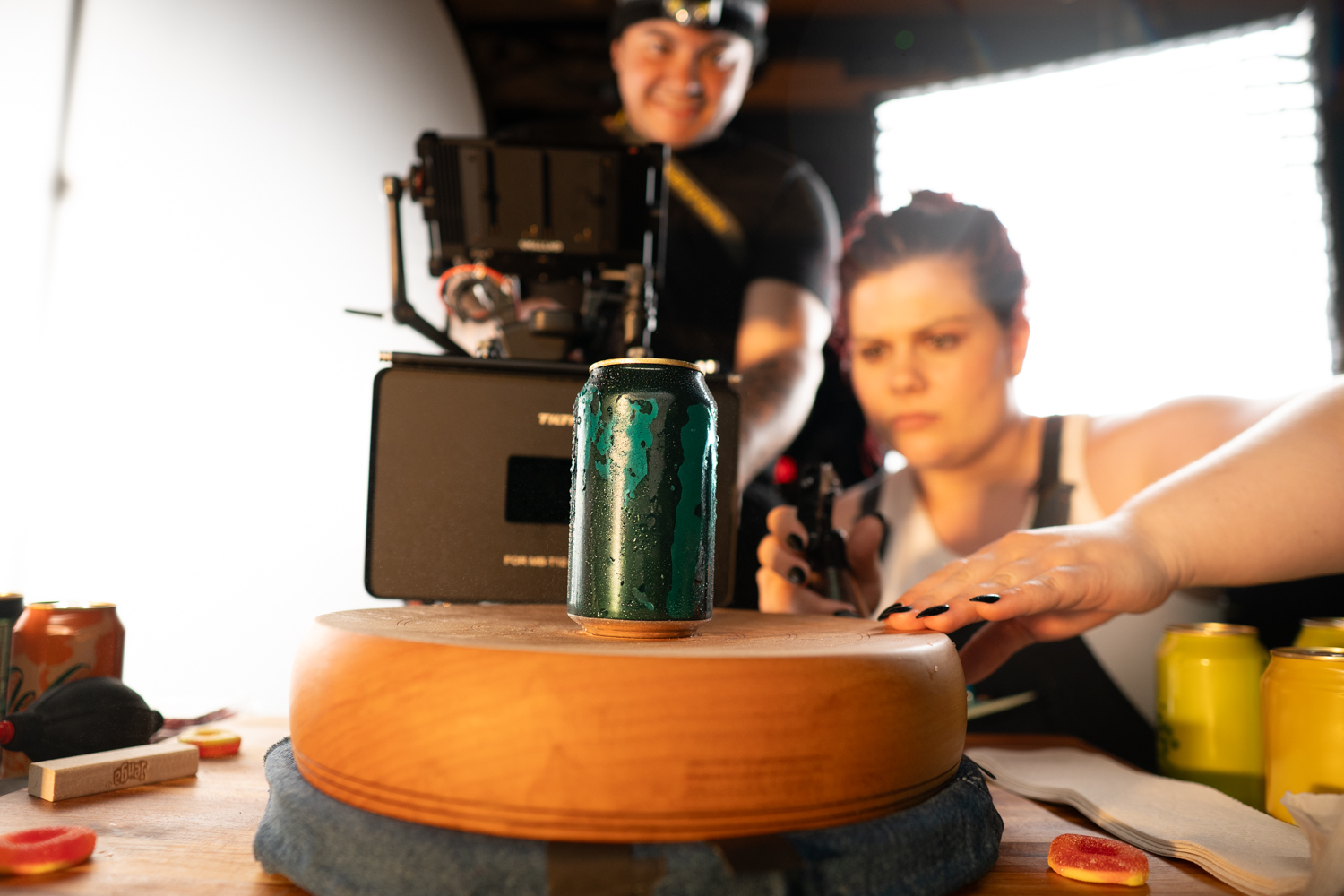
For you, what’s the most rewarding aspect of being a creative?
For me, the most rewarding part of being a creative is getting to do something I truly choose to do — not because I have to, but because I love it. Of course, making a living matters, but at the end of the day, I feel incredibly lucky that my work is driven by passion, not obligation. I also find a lot of joy in helping bring other people’s stories and visions to life. It’s not just about expressing my own creativity — it’s about collaborating, understanding someone else’s idea, and turning that into something real.
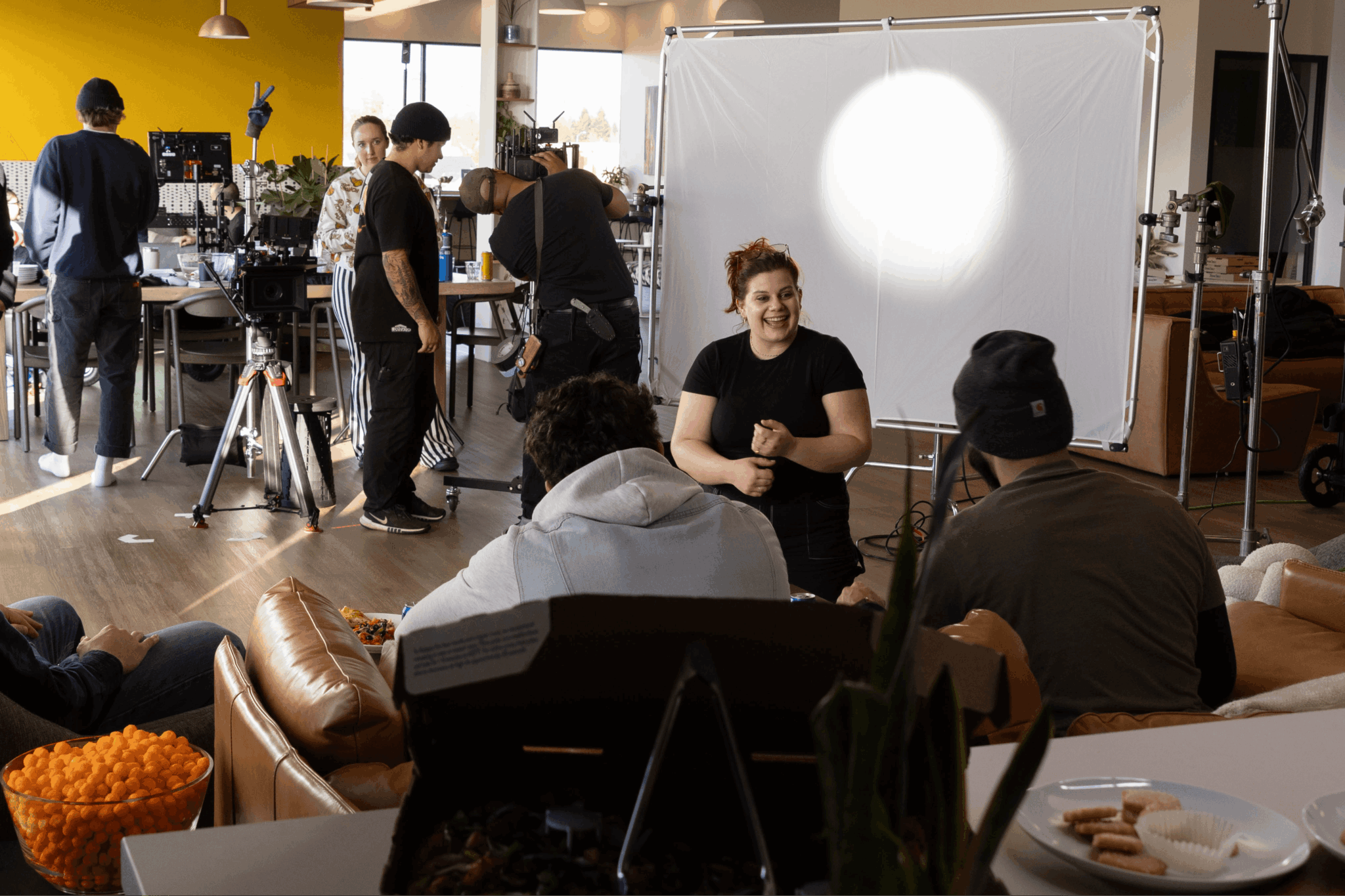
Is there mission driving your creative journey?
The goal that drives my creative journey is simple: I want to be excited about what I do. So many people work just to live, and in my early 20s, I had to ask myself — do I want to work to live, or live to work? For me, it’s important that I’m proud of the work I create and genuinely energized by it. I want to wake up and think, “Oh my gosh, I get to do this!” Of course, every project takes hard work, and it’s not always easy, but being able to keep that excitement while continuing to learn and grow as both an individual and an artist feels incredibly rare and privileged — and that’s what keeps me moving forward.
Contact Info:
- Website: https://leahfrichter.myportfolio.com/work
- Instagram: @leah_richter
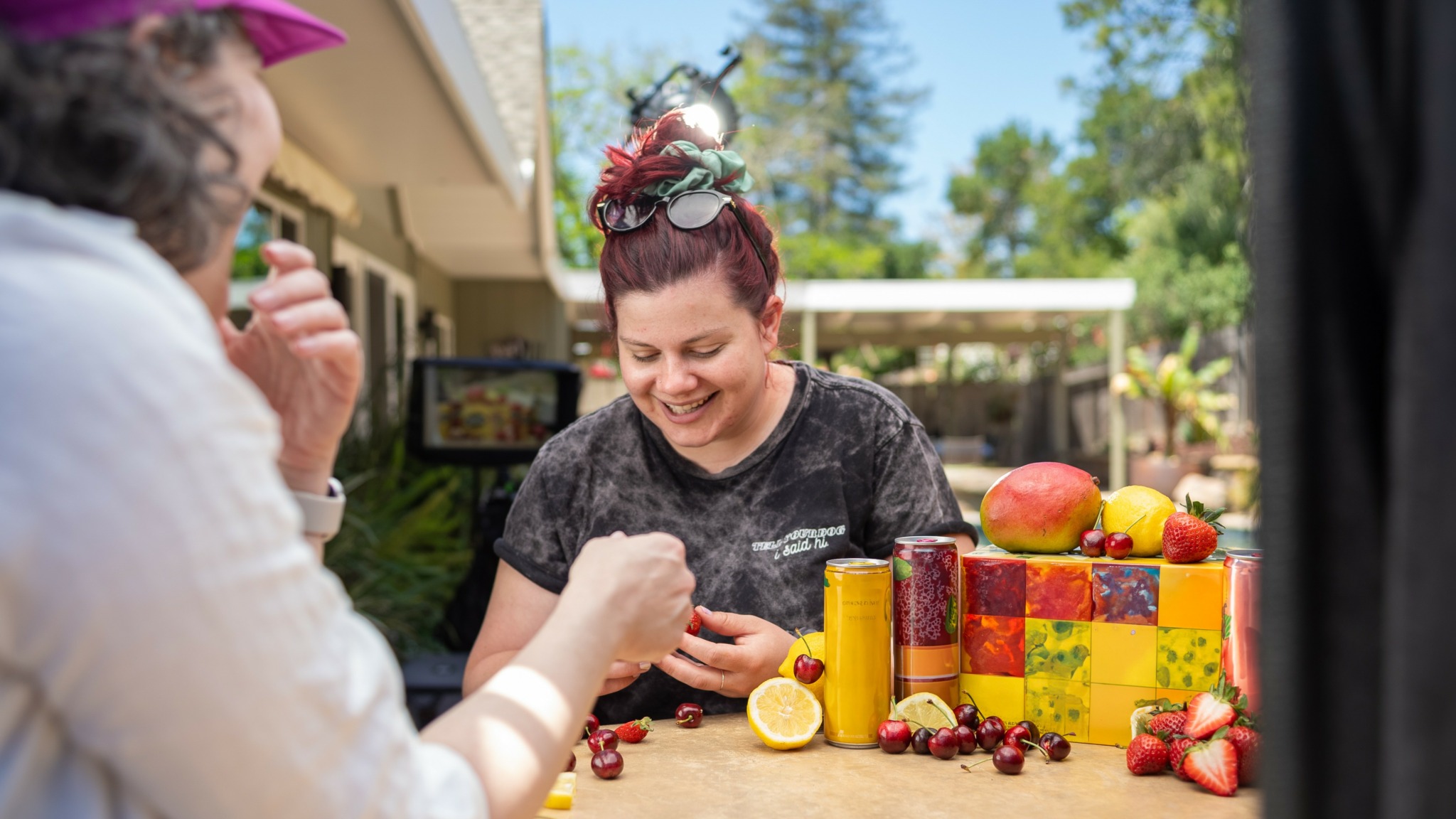
Image Credits
First image (three people looking at monitor): Jeremiah Aguirre
Second Image (can in foreground with blurry background of two people): Marcus Ward.
Third photo (wide of set): Hiro Sogi.
Headshot & Fourth Photo (laughing photo with fruit): Dominic Bowker


